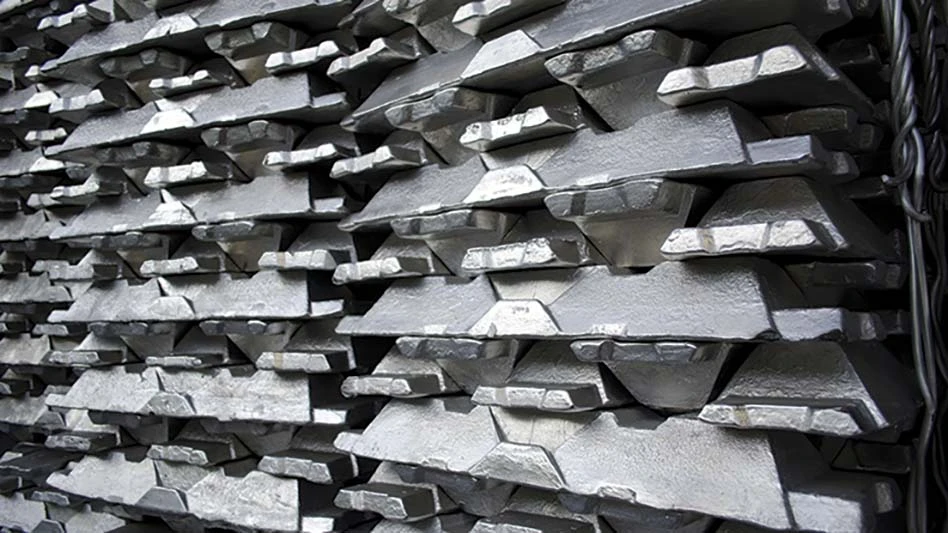 As
As
Pace Setters
Electronics recyclers are adapting new ways to handle the change in the incoming material stream. Some electronics recycling companies have responded to these changes by adding new shredders to their processing lines. John Shegerian,
“Everything you build, you want to build it better. As you evolve, your technology evolves. This changing stream is about evolving,” he says.
Bill McGeever, vice president of operations at ECS Refining, Santa Clara, Calif., says, while shredders have had a role in electronics recycling for a long time, he has seen a dramatic increase in the number
McGeever also points out that people are storing personal information on these devices and naturally want that data destroyed before parts are sold for re-use, which makes information destruction a critical part of the electronics recycling process.
The Two-Step
Many recyclers have adopted the use of primary and secondary shredders in their processing lines. Chris Ryan, president of Metech Recycling, Denver, says he has found several advantages to this two-stage shredding process. In a two-stage shredding line, the primary shredder produces a coarse shred. A sorting line then follows. “This is very common for quality control. It helps us make sure toxic matter doesn’t go to the wrong place and buyers get what they are supposed to get,” he says. The sorting line that follows the primary shredder is where things like batteries are supposed to be removed and high-grade and low-grade items are separated.
Magnets and eddy currents also are used to remove base metals, such as steel and aluminum, Ryan says. “This is used more in low-grade things that may or may not have a circuit board but aren’t worth picking by hand.”
Shegerian says the dual-stage shredding process also can improve commodity recovery and value. “The more we can separate things out, the more value it has for our smelter partners,” he says. Finding the best commodity value is something that needs to be thought of every day, and a two-step shredding process better allows electronics recyclers to recover secondary commodities, Shegerian says. This keeps downstream consumers happier, he adds.
McGeever shares the saying he says is often heard around ECS Refining’s facility: “Give me material only that is green and clean.”
Recyclers say they have seen a difference in the composition of the incoming material stream. A lot of items like laptops, cell
“The process still involves a lot of manual sorting because of the high amount of low-grade stuff coming in,” Ryan says.
ECS Refining’s McGeever says he has noticed an increase in unwanted materials in his company’s incoming stream. “You don’t want to shred items like consumer packaging, propylene
Into the Future
Evaluating the shredding process is a constant aspect of the electronics recycling business. Sometimes, the latest equipment may not be the greatest equipment for all operations. As an example, McGeever cites his company’s decision not to add a certain shredder to ECS Refining’s processing system, even though it was creating a lot of industry buzz. Particle size is a debate McGeever hears about a lot, he says. Recently the discussion turned to the potential merits of chain shredders, with some industry professionals saying they
 McGeever says, “Shredding technology has been reassessed two or three times in the last few years. If we see something that is a better tool, we’re always watching and thinking about it.”
McGeever says, “Shredding technology has been reassessed two or three times in the last few years. If we see something that is a better tool, we’re always watching and thinking about it.” He continues, “Chain shredders were being used in Europe, the United
For ECS, it comes down to the entire sets of tools (shredders, magnetic separators, eddy current separators, optical separators, pick stations, ball mills, float/sink technologies) and how they are configured and deployed as a system. The decision to use the knife technology in ECS’ primary shredder was about optimizing separation from the downstream processing system that the company had configured, McGeever says.
Smaller pieces may not always be advantageous, either. McGeever says smelters still want material delivered in a certain way and plastics recyclers prefer larger pieces so they can more easily sort incoming material.
The general consensus among the sources interviewed for this feature is that the electronics recycling process will continue to evolve to meet the changing nature of
The electronics recycling process could continue to get faster and more efficient as companies continue to work on their methods, but Ryan says he strongly believes manual picking will continue to be a part of the process.
Electronic Recyclers International’s Shegerian agrees, saying, “A certain level of manual labor will still be necessary.”
Manual picking is still considered the best way to make sure materials don’t end up where they should not, though it is a more expensive process, according to sources.
“You end up paying for it in labor costs or you will pay for it after” when material needs to be disposed of in a classified landfill because it contains toxic substances, McGeever says. “Sometimes what may seem cheapest isn’t what’s best for the environment.”
One thing that is likely to change is the shredder. As time goes on, those sleek TVs will continue to get sleeker, and tiny MP3 players will start resembling matchbooks instead of a deck of cards—and these items will make their way to recycling facilities at the end of their useful lives.
McGeever predicts shredders will shrink to accommodate these changes to electronic devices. “You don’t want the entire device slipping through the shredder,” he says.
Additionally, McGeever says sizing and screening changes might help recyclers better accommodate flat panel LCD monitors. Ideally, as LCDs enter the recycling stream, they will be able to go into the shredder whole.
One thing remains certain amid all of these changes: The electronics recycling industry is working to keep pace with technological advancements in electronic devices, and it is not always an easy process.
The author is

Explore the August 2011 Issue
Check out more from this issue and find your next story to read.
Latest from Recycling Today
- Cyclic Materials to build rare earth recycling facility in Mesa, Arizona
- Ecobat’s Seculene product earns recognition for flame-retardant properties
- IWS' newest MRF is part of its broader strategy to modernize waste management infrastructure
- PCA reports profitable Q1
- British Steel mill subject of UK government intervention
- NRC seeks speakers for October event
- LME identifies Hong Kong warehouses
- Greenville, Mississippi, launches aluminum can recycling program





